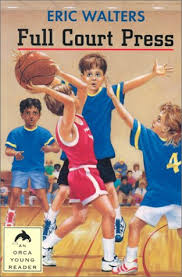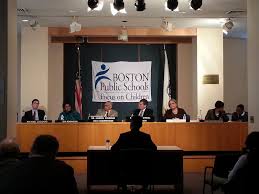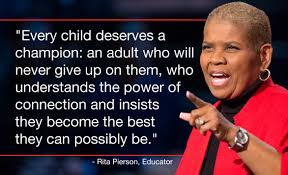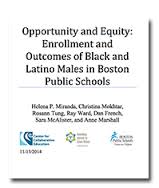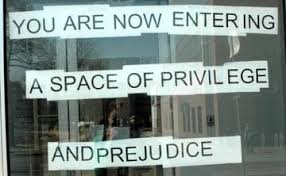 The Parent Imperfect has been consistently critical of the Boston Globe’s coverage of debates around the future of public education in Boston and the Commonwealth. In its editorials and signed columns, the Globe has consistently belittled elected officials and anyone else who failed to see the wisdom of continued expansion of the charter school sector, and the paper’s other pet policies. The day-to-day reporting on the topic has not been so monolithic, but has failed to capture the nuances of the equity arguments against education reform, as it is now being practiced. It is certainly not the Globe’s job to agree with me, but is it asking too much to hope that Boston’s most influential daily could at least offer a reasonable picture of opposing views?
The Parent Imperfect has been consistently critical of the Boston Globe’s coverage of debates around the future of public education in Boston and the Commonwealth. In its editorials and signed columns, the Globe has consistently belittled elected officials and anyone else who failed to see the wisdom of continued expansion of the charter school sector, and the paper’s other pet policies. The day-to-day reporting on the topic has not been so monolithic, but has failed to capture the nuances of the equity arguments against education reform, as it is now being practiced. It is certainly not the Globe’s job to agree with me, but is it asking too much to hope that Boston’s most influential daily could at least offer a reasonable picture of opposing views?
Apparently not, as the December 4 Globe article entitled, “Walsh Taking Heat Over School Agenda,” by Jeremy Fox, took an important step in that direction. Even I can give credit where credit is due, and much credit is due here. If the article had one shortcoming, it focused a bit too much on a single parent group, QUEST. I am well aware of that organization’s importance, but there are actually a growing number of organizations, individuals and elected officials raising questions about Enroll Boston and other City Hall education policies. Focusing on a single organization justifies an attitude of “the dogs will bark, but the caravan rolls along,” among decision makers. But this is small potatoes, compared to value of this sort of reporting.
 For this article, Fox interviews both Mayor Walsh and Boston parents critical of what they see as the direction of his education policy. He then presents the opposing views in a way that captures what both sides are saying, without editorializing. Transcending the recent kerfluffle about the number school closings planned, the article reports what parents actually heard from the Mayor in a September 29 meeting at City Hall. I have it on very good (though imperfect) authority that the Mayor said, in talking about BPS facilities, that “We’re going to get down to ninety buildings.” That doesn’t suggest any particular number of school closings, but it certainly suggests a consolidation from the present use of 125 or 126 school buildings. When Fox asked the Mayor about those alleged remarks, rather than answer the question, the Mayor felt the need to deny that he has a plan to close schools. Thou doth protest too much…
For this article, Fox interviews both Mayor Walsh and Boston parents critical of what they see as the direction of his education policy. He then presents the opposing views in a way that captures what both sides are saying, without editorializing. Transcending the recent kerfluffle about the number school closings planned, the article reports what parents actually heard from the Mayor in a September 29 meeting at City Hall. I have it on very good (though imperfect) authority that the Mayor said, in talking about BPS facilities, that “We’re going to get down to ninety buildings.” That doesn’t suggest any particular number of school closings, but it certainly suggests a consolidation from the present use of 125 or 126 school buildings. When Fox asked the Mayor about those alleged remarks, rather than answer the question, the Mayor felt the need to deny that he has a plan to close schools. Thou doth protest too much…
In the interest of full disclosure, I must note that the December 4 article also met the litmus test of all good journalism by providing a link to my own description of the raucous Jamaica Plain meeting concerning the Mayor’s proposal to unify charter and public school enrollment systems. That, too, was a Globe first. In all modesty, I do think that the link strengthened the article (and sent many newbys into the arms of the PI), but the clear presentation of both sides of the argument is what really distinguishes the piece.
 Things are about to get even less polite in the public debate about the future of our public schools. Partners from three of Boston’s most prestigious (and deep-pocketed) law firms are moving forward with a suit charging the Commonwealth with civil rights violations for placing a cap on charter school growth. Our Governor and Education Secretary have proposed legislation that is more “bullish” on charter schools than anything the boldest charter school advocate would have dared to ask for, even two years ago. Charter school PR consultants are spinning at top speed in support of a ballot question designed to bludgeon the State Senate into submission on the question of the charter school cap. And against this troubling backdrop, the elected champion of Boston’s public schools shows every sign that he is out to earn his recent “Lifetime Achievement” award from the state’s charter school association. A formidable, multi-headed, giant is getting its bearings and piling up gold bars, but the Lilliputians are quietly untangling their ropes.
Things are about to get even less polite in the public debate about the future of our public schools. Partners from three of Boston’s most prestigious (and deep-pocketed) law firms are moving forward with a suit charging the Commonwealth with civil rights violations for placing a cap on charter school growth. Our Governor and Education Secretary have proposed legislation that is more “bullish” on charter schools than anything the boldest charter school advocate would have dared to ask for, even two years ago. Charter school PR consultants are spinning at top speed in support of a ballot question designed to bludgeon the State Senate into submission on the question of the charter school cap. And against this troubling backdrop, the elected champion of Boston’s public schools shows every sign that he is out to earn his recent “Lifetime Achievement” award from the state’s charter school association. A formidable, multi-headed, giant is getting its bearings and piling up gold bars, but the Lilliputians are quietly untangling their ropes.
 The Globe article ends with a telling quote from Mayor Walsh. “It’s my understanding that QUEST is a parent organization…out there advocating for kids. We should stick to the advocacy for kids and not focus on rumors.” Ok…but just what “rumors” is the Mayor talking about? Is it the rumor that he said that “we’re going to get down to 90 buildings?” Or maybe its the rumor that he has proposed relaxing the cap on charter schools in Boston? Or the one that he is in favor putting important responsibilities around Boston school enrollment in the hands of a scantily qualified organization that operates with little or no public accountability? No, no, he’s probably referring to the rumor that documents obtained by Quest (from the Mayor’s office, by the way) refer to discussions regarding possible co-location of charters and public schools. Sorry, but I read all of these as related facts…dots to be connected, not rumors.
The Globe article ends with a telling quote from Mayor Walsh. “It’s my understanding that QUEST is a parent organization…out there advocating for kids. We should stick to the advocacy for kids and not focus on rumors.” Ok…but just what “rumors” is the Mayor talking about? Is it the rumor that he said that “we’re going to get down to 90 buildings?” Or maybe its the rumor that he has proposed relaxing the cap on charter schools in Boston? Or the one that he is in favor putting important responsibilities around Boston school enrollment in the hands of a scantily qualified organization that operates with little or no public accountability? No, no, he’s probably referring to the rumor that documents obtained by Quest (from the Mayor’s office, by the way) refer to discussions regarding possible co-location of charters and public schools. Sorry, but I read all of these as related facts…dots to be connected, not rumors.
When important discussions are happening behind closed doors, and parents and other stakeholders get their information on a “need to know” basis, people will start to put together what they do know in an attempt to understand what’s going on. Errors may happen when people don’t have information, but more transparency and accountability, rather than criticism and tighter secrecy, is the way to clear up such misunderstandings.




![Gov. Baker testifies on behalf of his charter school expansion bill before the Committee on Education. [Photo: Antonio Caban/SHNS] 10/13/15](https://parentimperfectct.files.wordpress.com/2015/10/baker-on-charters1.jpg?w=300&h=154)

